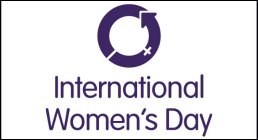International Women's Day 2019: A Woman’s Place is in the Workplace

07/03/2019
International Women’s Day - 8 March 2019
Speaking on International Women’s Day, Eileen Lavery, Head of Policy at the Equality Commission for Northern Ireland, said that, more than 40 years after sex equality laws were introduced, too many women are still confronted by attitudes and treatment which diminish their status at work and affect their health, their finances and their career opportunities.
“The Equality Commission still gets more complaints about sex discrimination than on any other discrimination ground except disability,” she said. “It consistently accounts for around 27% of all the complaints received by the Commission each year and around two thirds of these – over 600 complaints - involve the treatment of women in the workplace.”
“The two most common causes for complaint are pregnancy discrimination and sexual harassment. Women cannot be said to have full equality in the workplace while they are still subjected to such treatment.”
“A continuing lack of adequate, affordable childcare also acts as serious barrier to employment for many women,” she said. “There is only limited availability and it is costly - a full-time childcare place per week is calculated as equating to 37% of the weekly median household income in Northern Ireland.”
“This impacts directly on people’s ability to work and the number of hours they can commit to, and it still falls largely on mothers to sacrifice job opportunities and make difficult career choices as a result. One in three women cite family or home commitments as the reason they are unavailable for work - the comparable figure for men is approximately one in twenty. We need urgent action to improve childcare provision and employers also need to be more accepting and innovative in accommodating parents’ needs for flexibility and understanding in the workplace.”
“Although the female employment rate has risen steadily, and women are working in a broader range of occupations and industries, these underlying, systemic inequalities and problems have persisted,” Eileen Lavery said. “Tackling them must be given a higher policy priority by policymakers in Northern Ireland if we are to ensure women achieve – and maintain - their proper place as full equals within the workforce.”